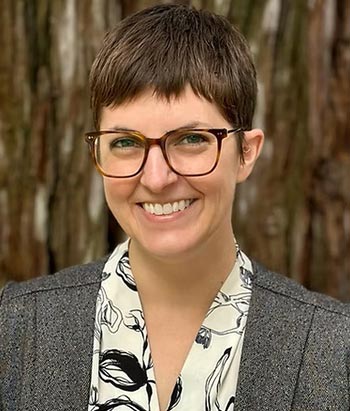Meet Dr. Katie Silbiger, PSY.D. at Banyan Behavioral Health in Burlingame, CA
Dr. Katie Silbiger is a clinical psychologist with experience in community mental health, outpatient behavioral health, and university counseling centers. She specializes in helping adults navigate anxiety, depression, trauma, and challenges with body image and identity. She is particularly skilled in working with individuals experiencing eating disorders and those facing marginalization, offering a compassionate, anti-diet, and HAES-aligned approach. For more information, contact us or request an appointment online. We are conveniently located at 877 Mahler Road, Suite 160, Burlingame, CA 94010. We serve patients from Burlingame CA, Foster City CA, South San Francisco CA, San Bruno CA, Belmont CA, Hillsborough CA, Millbrae CA, San Mateo CA and surrounding areas.


Dr. Katie Silbiger, PSY.D.
Licensed Clinical Psychologist (PSY35209)
(she/her)
Table of Contents:
What types of concerns does Dr. Katie Silbiger help clients address in her psychotherapy sessions?
What therapeutic modalities and values inform Dr. Silbiger’s approach to therapy?
What type of specialized training and experience does Dr. Silbiger have in treating eating disorders?
What issue does Dr. Silbiger’s research address regarding eating disorders and body weight?
Where is Dr. Silbiger originally from, and where does she currently live?
Dr. Katie Silbiger earned her doctorate in clinical psychology from the Wright Institute in Berkeley, CA. Her professional background includes training and experience in community mental health, outpatient behavioral health within a medical setting, and in high school and university counseling centers. Dr. Silbiger offers individual psychotherapy for adults, helping clients address a variety of concerns including anxiety, depression, trauma, difficulties with food or body image, relationship difficulties, and self-exploration related to gender, race, culture, neurodiversity, and other aspects of identity.
Dr. Silbiger’s therapeutic approach is integrative, flexible, and client-centered, combining relational and behavioral techniques to best support each individual’s unique needs. She draws from modalities such as Dialectical Behavior Therapy (DBT), Acceptance and Commitment Therapy (ACT), and systems therapy, working from a multicultural feminist lens. She is committed to an anti-diet, Health at Every Size (HAES)-aligned approach, and is a strong supporter of the Body Liberation movement.
Dr. Silbiger has expertise in working with disordered eating and eating disorders such as anorexia nervosa, bulimia nervosa, binge eating disorder, and ARFID. During her graduate training, she completed a practicum at Kaiser’s Enhanced Outpatient Eating Disorder Program, followed by a predoctoral internship and postdoctoral residency at UC Davis in a specialized eating disorder treatment track.
Dr. Silbiger has published research highlighting the problem of underdiagnosis of eating disorders in people with higher body weights, with mental health providers being more likely to recognize and treat eating disorder symptoms in lower-weight clients. She is deeply invested in supporting clients who experience marginalization of any kind, with a particular sensitivity to clients in larger bodies. She is happy to see clients at any point on the weight spectrum.
Originally from Atlanta, GA, Dr. Silbiger earned her Bachelor’s of Arts in psychology from Carleton College in Minnesota before relocating to Oakland, CA, where she has lived since 2010. In her free time, she enjoys music, exploring the Bay Area, and playing with her foster kittens
EDUCATION
∙ Doctor of Psychology (Clinical Psychology)
The Wright Institute
∙ Bachelor of Arts (Psychology)
Carleton College
EXPERTISE
∙ Eating disorders
(Anorexia nervosa, Bulimia nervosa, Avoidant-restrictive food intake disorder (ARFID), Binge eating disorder)
∙ Body image concerns
∙ Anxiety
∙ Depression
∙ Trauma
∙ Relationship issues
PUBLICATIONS
∙ Silbiger, K. (2024). Mental health providers’ perceptions of restrictive eating disorders: Relationship with client body weight. International Journal of Eating Disorders, 57(4), 916–923.




